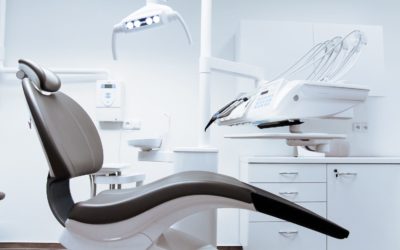There are countless benefits to having a beautiful smile. People are often concerned about the health of the teeth that appear when they smile, but they do not worry as much about the teeth in the back of their mouth. With respect to chewing food and eating, keeping all your teeth in good shape is just as important as — if not more important than — maintaining a beautiful smile. All teeth can be affected by grinding, not just teeth in the back of the mouth. Front teeth are just as damaged, if not more, because of the way the vertical stresses are placed on these teeth, and the way these teeth are shaped and contoured (biting edges are very thin compared to the back teeth).
Grinding can thin away the enamel, chip and break the crowns of your back teeth, and damage your jaw. It can also cause tightness and soreness of the lower jaw and be a big culprit of headaches. Bruxism (teeth grinding and clenching) is a degenerative disease that affects the ligaments and cartilage in the joint of your lower jaw. Grinding your teeth may not only be the catalyst of bruxism, but continued grinding will exacerbate it.
Teeth grinding is far more than just an irritant to those who sleep near you; it can be very unhealthy. The grinding away of enamel, broken teeth, headaches and jaw joint degeneration are just a few reasons teeth grinding is a bad habit that should be addressed immediately.
Causes of Teeth Grinding
A number of factors can cause teeth grinding. Anxiety is one of the biggest factors that leads to teeth grinding. Anxiety caused by events in your daily life can manifest itself in the form of teeth grinding. There is also a corollary relationship between sleeping disorders — like sleep apnea — and teeth grinding. Bruxism, or more specifically teeth grinding, can be a secondary effect of sleep apnea. When the brain senses that a person is not breathing due to the tongue collapsing backwards onto the airway, which is also connected to the lower jaw, the brain tells the lower jaw to move, or “grind back and forth” to eventually move the tongue from the blocked airway.
Preventing Teeth Grinding
It may take time to completely resolve a teeth grinding issue, if it happens at all. In the meantime, it is best to talk to a dentist about a night guard. By wearing a night guard while you sleep, you can help prevent teeth grinding from doing further damage. Most of our bad habit of bruxism occurs at night because our subconscious takes over, and we have no control how our brain or jaw functions. During the day, if we are clenching or grinding, we can consciously tell ourselves not to brux.
Fortunately, there are ways to manage teeth grinding. After the precautionary measure of getting fitted with a night guard has been achieved, you can begin taking steps to prevent yourself from teeth grinding. The most productive means of preventing teeth grinding require lifestyle changes.
As teeth grinding is associated with stress, you must decide what it is that creates anxiety and attempt to remove it. Of course, job stress, marital stress and financial pressures are difficult to alleviate, but simple measures like avoiding beverages with disproportionate amounts of caffeine — coffee and soft drinks being the main culprits — are a step in the right direction.
Alcohol consumption also intensifies teeth grinding. Eliminating the consumption of caffeine and alcohol, or at least minimizing it, can lower anxiety and reduce teeth grinding.
Another approach that dentists suggest is not allowing oneself to chew nervously during the day. Chewing fingernails, pens and gum— anything that isn’t food— are habitual activities that carry over into a person’s sleep. Gum is probably the biggest culprit to orofacial pain and contributor to headaches.
Teeth clenching during the day is another habit forming exercise that carries over, and it is most akin to teeth clenching at night.

Signs of Teeth Grinding
Many people do not realize they grind their teeth at night unless someone tells them. However, tightness of the jaw in the morning, headaches during the day, and a sore jaw joint are all symptoms of teeth grinding.
If you do not know for sure whether you are grinding your teeth at night, but have symptoms that indicate you may be, it is best to visit a dentist and find out for sure what may be creating those symptoms. While a great smile is important for self-confidence, maintaining healthy back teeth is just as important.
To help you track symptoms and get more information about relieving the pain caused by teeth grinding, request your free copy of our joint pain and headache journal.








